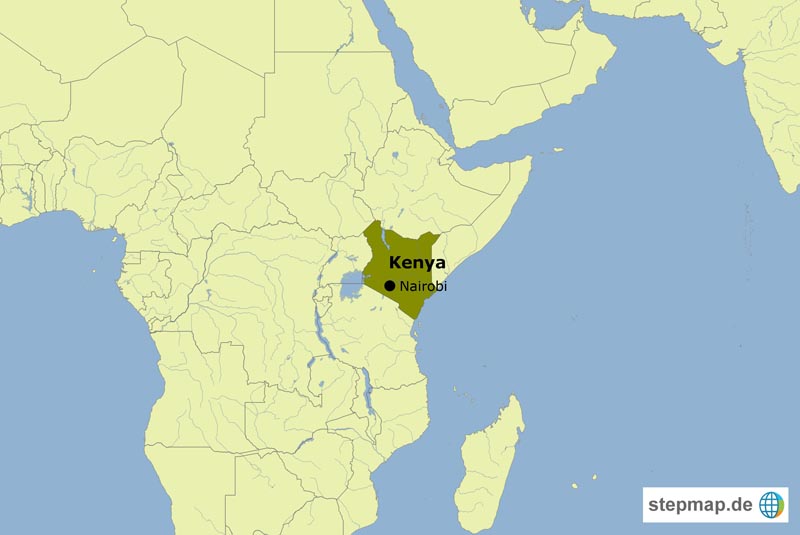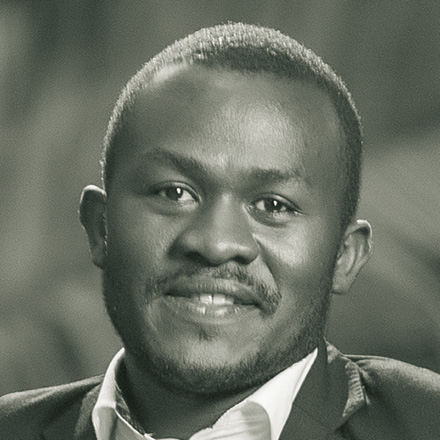Identity politics
Why Kenya’s president has fallen out with his deputy

Kenya’s top two leaders, President Uhuru Kenyatta and his deputy William Ruto, are in a potentially dangerous political conflict. They were re-elected on a joint ticket to a second term in 2017. Their alliance was billed as a unity pact between Kenyatta’s tribe, the Kikuyu, and Ruto’s tribe, the Kalenjin. Nonetheless, the two leaders are now scheming against each other, stoking old tribal rivalries once again.
In the run-up to the 2022 election campaign, Kenyatta has announced a “national unity pact” with opposition leader Raila Odinga of the Luo tribe – thus leaving Ruto and the Kalenjin out in the cold. The Kenyatta-Odinga combination has historical precedent. In 1963, Kenyatta’s father and Odinga’s father became president and vice president of Kenya’s first independent government after colonial rule.
The new Kenyatta-Odinga alliance claims to be more than a reshuffling of tribal coalitions. Instead, it claims to have the loftier aim of national unity.
After signalling their new alliance with a much-advertised handshake, Kenyatta and Odinga proposed a sweeping constitutional overhaul. Among other things, they proposed to “promote electoral competition based on ideas, values and our shared humanity, rather than on the common-enemy identity politics that have defined our electoral cycles to date.”
Similarly, Kenyatta and Odinga want to decentralise the administration to ensure “greater inclusivity, fairness, equity and accountability in the distribution of resources.” Moreover, Odinga suggested a “rotating presidency” in which each tribe gets a chance to lead the country. The big irony is that Kenya’s constitution is only ten years old and was adopted after the country went through a traumatic post-election violence in early 2008. Back then, tribal clashes and police killings claimed more than 1,000 lives.
No exclusive claim to the presidency
In January 2021, however, Kenyatta stated that the presidency is not the private reserve of Kikuyus and Kalenjins. “Perhaps it is the turn for another community to rule,” he said. His comment was widely interpreted as an attack on Ruto.
Ruto shot back, saying that politics should focus on issues other than tribalism in the first place. Instead, he said that “everybody should campaign based on policies that will change the lives of Kenyans.” Ruto took up the cause of young people who say politicians are talking about tribes when they should be talking about money and livelihoods. Ruto’s comments, in turn, were interpreted as an attack on the new Kenyatta-Odinga alliance.
Quite obviously, debate is still focused very much on tribal identity. Leaders may debate ways to lessen its influence, but they are far from eradicating it.
Rooting out tribalism
Kenyatta himself admitted as much when he announced the constitutional reform proposal in October 2020. He said the system of incentives linked to tribalism will be difficult to change.
“The fact of the matter is that we are a tribal society, and this is what divides us,” he said. “We pretend that we are national leaders. But when the time comes, we switch to [tribal] vernacular and become what we are.” He admitted that he himself was not an exception.
Indeed, he reverted to type fast. When Ruto started mobilising his supporters in early 2021 in opposition to the new Kenyatta-Odinga alliance, the president, who has unlimited access to the national broadcast network, turned to radio stations that broadcast in his tribal language. He chose to address only the Kikuyu people – his people. He had done so before. His step immediately re-kindled resentment over “Kikuyu privilege”.
Such grumbling is nothing new. Sometimes inter-tribal tensions flare up into violence, especially during election campaigns. The reason is that so much patronage is at stake. Tribal affiliation determines whether one gets a job or a government contract, and whether a region gets a new road, a new hospital or other crucial infrastructure.
Two dominant tribes
Although the country has at least 44 tribes, two dominant groups – the Kikuyu and the Kalenjin – hold close to 40 % of civil-service jobs. Not coincidentally, only members of these two tribes have served as presidents of independent Kenya. Government officials are generally known to use their jobs to share the spoils with their respective communities.
Had Kenya’s leaders done a better job since the British colonial power left in 1963, ethnicity would no longer be an issue. Instead, tribalism is today what racism was in pre-independence Kenya. It is held in place by informal structures, with networks making the system profitable for those in power.
As a result, tribal identity remains very important. These attitudes are rooted in traditions and cannot be eradicated quickly. Tribalism is perpetuated in subconscious cues, innuendos, dog-whistling, stereotyping and even overt cultural slurs. Proving hate speech is difficult, so abuses are not necessarily punishable by law. When the targets of slurs call out such behaviour, they are often accused of tribalism themselves.
Youth rebellion
Still, there are signs of change in the enduring focus on tribalism. At least in theory, Kenyatta and Odinga are calling for an end to identity-driven politics – although their actions speak a different language. Their new call for unity may simply serve as a smokescreen to hide the shutting out of Ruto, at least it started a conversation about changing the focus to fair opportunities for all.
More promising is the emergence of a movement of young people. They want identity-based patronage to end and demand more opportunity for all (see box). Ruto has taken up their cause, arguing that discussing fairness and opportunity is far more important than debating nuanced constitutional reforms.
He is trying to attract the potentially huge constituency of Kenya’s young people. An estimated 75 % of the population is under 35 years old. Most of them have primary and secondary education but still must eke out a living in the informal sector. They are less willing than their elders to accept the narrative of one or the other tribe being to blame for grievances. They are increasingly turning away from cultural stereotyping, fabricated ethnic animosities and long-standing divide-and-rule strategies.
The big issue
Ruto says the real political divide is between those who work their way up the economic ladder and those who inherit privilege and wealth. He says the important issue is fair access to land, jobs and opportunities. Fair access would mean, for example, that regions dominated by the opposition would get their share of roads, hospitals, electric power lines and other infrastructure.
The big issue is how to achieve fair distribution. There already are laws and institutions to guard against discrimination based on ethnicity. There is even a National Cohesion and Integration Commission, a government agency that promotes diversity and inclusion.
Ultimately, discrimination persists because of entrenched beliefs that one’s own group is better than “those others”. Tribal prejudice in this sense is similar to racism; beliefs about the superiority of one’s own group perpetuate injustices. Those beliefs must be addressed through a process of public education, and implementing the aspirations of equality and fairness in existing laws. More laws and a big, ill-timed constitutional reform will not do the job.
Alphonce Shiundu is a Kenyan journalist, editor and fact-checker based in Nairobi.
shiunduonline@gmail.com
Twitter: @Shiundu
Normal 0 21 false false false EN-GB X-NONE X-NONE /* Style Definitions */ table.MsoNormalTable {mso-style-name:"Normale Tabelle"; mso-tstyle-rowband-size:0; mso-tstyle-colband-size:0; mso-style-noshow:yes; mso-style-priority:99; mso-style-parent:""; mso-padding-alt:0cm 5.4pt 0cm 5.4pt; mso-para-margin-top:0cm; mso-para-margin-right:0cm; mso-para-margin-bottom:8.0pt; mso-para-margin-left:0cm; line-height:107%; mso-pagination:widow-orphan; font-size:11.0pt; font-family:"Calibri",sans-serif; mso-ascii-font-family:Calibri; mso-ascii-theme-font:minor-latin; mso-hansi-font-family:Calibri; mso-hansi-theme-font:minor-latin; mso-bidi-font-family:"Times New Roman"; mso-bidi-theme-font:minor-bidi; mso-ansi-language:EN-GB; mso-fareast-language:EN-US;}










